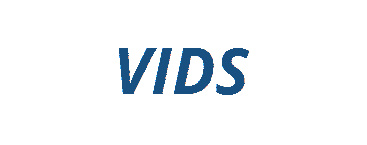

The Virtual Indigenous Data Science Academy is a program hosted by the UND School of Medicine and Health Sciences in partnership with area Tribal colleges to begin to address the growing demand for data science education. This training academy will introduce students to the foundations of data science and analytics. The Virtual Indigenous Data Science Program addresses the under-representation of American Indians and Alaskan Natives in the biomedical research workforce by introducing students to data, computational approaches, access to resources, and career opportunities in data science.
The Initiative builds on the NIH-funded ND INBRE Health & the Environment program, which is housed at the UND School of Medicine and Health Sciences.
Registration for the 2025 VIDS Academy is now closed.







The theme for the fourth Annual Virtual Indigenous Data Science Academy will be Mosquitoes, Climate, and Community Health. Using various data sources, students will have an opportunity to apply the concepts and statistical techniques of biomedical data science to understanding the effects of climate on mosquito populations, transmission of disease, and its consequences for human health.
Data science is a rapidly expanding interdisciplinary field of study that is gaining momentum in many subject areas. In healthcare, these technologies are leading the way to transformative change. The VIDS Training Academy, a partnership between the UND School of Medicine and Health Sciences and area Tribal Colleges and Universities, aims to begin to address the growing demand for data science education and mentorship within indigenous communities.
This unique online data science curriculum is designed to introduce Tribal College students to computational approaches and critical resources needed for advancing knowledge in biomedicine and public health. The VIDS Training Academy will introduce students to the interdisciplinary field of data science. Using a culturally-grounded approach, the VIDS Training Academy will provide participants with the background and essential data science skills for working with key data sources in biomedical research and public health. The principles and practice of indigenous data sovereignty will be observed throughout the course.
Learning Objectives
1. Describe the interdisciplinary field of data science
2. Discuss indigenous perspectives of health data ethics and implications for TCUs and Tribal communities
3. Review foundational concepts in algebra and probability for data analytics
4. Describe the role of statistics in data science
5. Differentiate between spreadsheets and database systems
6. Match a programming language to a data science application
7. Apply guidelines for scientific visualization using MS Excel to summarize different types of data
8. Gain programming experience using MS Excel to manage, explore, and visualize data
9. Describe types of studies for investigating research questions
10. Distinguish between Big Data and little data
11. Describe the role of analytics in the transformation of data to knowledge
12. Weigh the advantages and disadvantages of cloud computing in biomedical research
13. Outline the steps of an analytic process
14. Recognize common applications of machine learning in healthcare
15. Interpret results of a machine learning solution
16. Demonstrate understanding of the potential and limitations of algorithmic knowledge